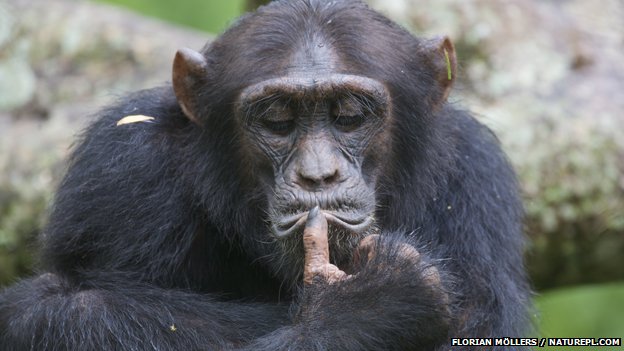I like you, PC. But you are soooooooo off base on this that it is cringeworthy.
I would suggest that before you start discussing scientific theory, that you find out the distinct characteristics that make a theory a scientific one. Nothing touchy-feely or subjective about it - crystal clear characteristics
Start with Karl Popper's
The Logic of Scientific Discovery. Stanford has an excellent condensed version.
Karl Popper (Stanford Encyclopedia of Philosophy)
Hey....neat!
And while I'm reviewing that, you might see if you can grasp the significance of these:
1. Alfred Wallace, co-author of Darwin's opus, in an essay entitled "Sir Charles Lyell on Geological Climates and the Origin of Species" (1869), wrote the following: Wallace observes in this essay, "Certain of our "physical characteristics are
not explicable on the theory of variation and survival of the fittest" --
2. David B. Kitts, evolutionist and paleontologist,: "Despite the bright promise that paleontology provides a means of 'seeing' evolution, it has presented some nasty difficulties for evolutionists the most notorious of which is the presence of 'gaps' in the fossil record.
Evolution requires intermediate forms between species and paleontology does not provide them." (Evolution, 28:467)
3. "We are now about 120 years after Darwin and the knowledge of the fossil record has been greatly expanded. We now have a quarter of a million fossil species but the situation hasn't changed much --
ironically, we have even fewer examples of evolutionary transition than we had in Darwin's time. By this I mean that some of the classic cases of Darwinian change in the fossil record such as the evolution of the horse in North America, have had to be discarded or modified as a result of more detailed information." (Field Museum of Natural History Bulletin, Chicago, 50:22-29)
4. Robert L. Carroll, vertebrate paleontologist who specialises in Paleozoic and Mesozoicamphibians and reptiles, in Vertebrate Paleontology and Evolution, states that
most of the fossil record does not support a strictly gradualistic account of evolution.
5.Steven J. Gould said: "In any local area, a species does not arise gradually by the steady transformation of its ancestors; it
appears all at once and fully formed." (Natural History, 86:12-16)
Alfred Wallace, David Kitts, the Chicago Museum of Natural History, Robert Carroll, Steven J. Gould.....
...did you notice that none of 'em say '"PoliticalChic" wrote this.'?
Did you want to label them as "cringeworthy"?
Or...you can simply ignore them and pretend that supports your view of science.
I like you too....but you seem to, at least in this area, choose to ignore the flaws in Darwinian evolution, that should more correctly assign it to the area of political philosophy than to science.
Trotsy understood it as such.
And, that behavior, is why I contend that the acceptance is more based on faith than empirical data.
Of course, even folks with your belief agree, I assume, agree that the theory doesn't comport with the scientific method as far as being based on reproducible experimentation.
True?
 Even religions today accept evolution as fact for the science is demonstrable. As for the soul we'll get there or not when we get there or not. Good stuff below, I've always found Williams interesting.
Even religions today accept evolution as fact for the science is demonstrable. As for the soul we'll get there or not when we get there or not. Good stuff below, I've always found Williams interesting. 
